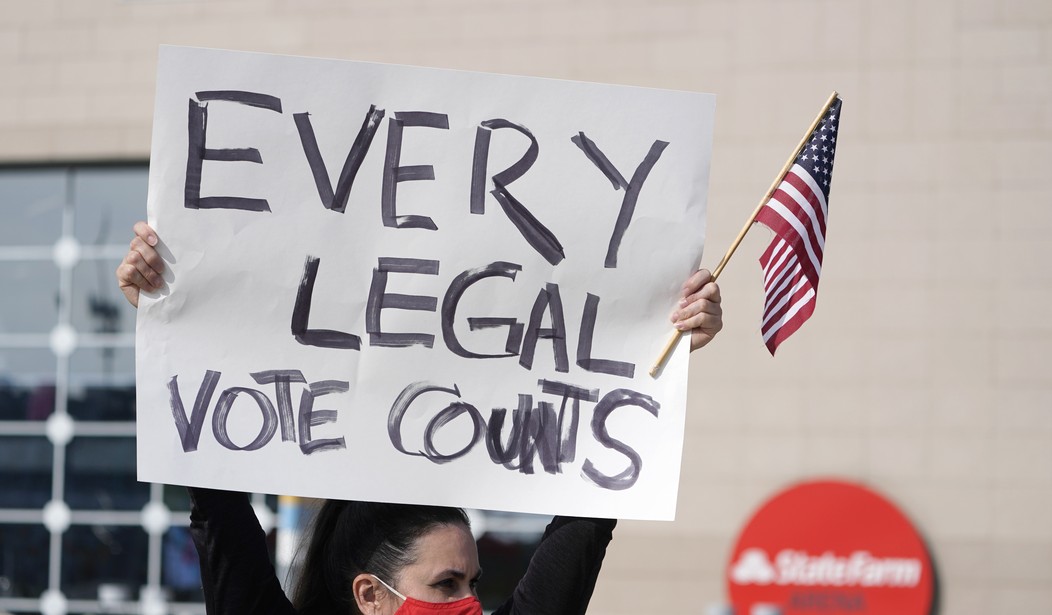Georgia’s election reform legislation is pretty good. But the future of the republic is at stake, and “pretty good” isn’t good enough.
Unfortunately, while the omnibus bill contains a number of laudable provisions, such as stricter ID requirements and absentee ballot safeguards, it also includes glaring flaws that could render the final product largely meaningless.
Most significantly, the language used to “ban” private funding of election administration has a loophole large enough to drive a semi-truck full of ballots through. Although the legislation bars election officials from directly accepting private funding, the wording expressly allows funding to flow through “the governing authority of the county or municipality,” which would not face such prohibitions.
The exception is presumably intended to give local governments flexibility to adapt to changing circumstances, but in practice it would merely grant permission for wealthy individuals and political activists to meddle in Georgia’s elections in exactly the same way they did in 2020.
Last year, Facebook founder Mark Zuckerberg spent over $400 million to fund elections — as much as the federal government allocated for COVID-related election expenses in the CARES Act. The grants were funneled through a leftist nonprofit called the Center for Tech and Civic Life (CTCL), which directed the bulk of the resources toward liberal-leaning jurisdictions, primarily urban areas of key swing states such as Pennsylvania, Michigan, Wisconsin, Arizona, and Georgia.
The money was ostensibly intended to help election officials pay for things like PPE and overtime pay. But in fact, much of it was used to finance absentee ballot drop boxes, facilitate “curing” of defective mail-in ballots, and engage in other activities designed to boost turnout.
Recommended
More worryingly, the CTCL grants imposed strict conditions on recipients, obligating them to follow a different set of rules than cities and counties elsewhere in the same state. The result, which the data experts at CTCL could have easily predicted, was to significantly drive up turnout in predominantly-Democratic areas, generating large numbers of additional votes for Joe Biden.
The money didn’t necessarily go directly to election officials, either. In Wisconsin, the mayor of Racine was given a $100,000 grant that contained instructions to recruit the mayors of four other left-leaning cities — Milwaukee, Madison, Kenosha, and Green Bay — to sign up for additional grants that ultimately amounted to more than $6 million.
In Green Bay, email correspondence uncovered by the Amistad Project shows that the mayor’s office went so far as to undermine the city clerk’s office and allow a representative from a private activist group, the National Vote at Home Institute, to take control over major elements of the city’s elections. The unaccountable manager even held the keys to the city’s centralized counting center.
A similar process played out in Georgia, where CTCL directed millions of dollars to left-leaning portions of the state — primarily Fulton County, where a mysterious “water main break” and overnight counting stoppages raised concerns about the centralized vote-counting center.
Put simply, the existence of hundreds of millions of dollars in private funding created a two-tiered election system run by a shadow government without proper transparency or oversight. In some states, including Georgia, the circumstances and conditions of the private funding even ran afoul of existing state law. It’s hardly surprising that a large portion of the electorate harbors doubts about the fairness of the 2020 elections.
Restoring public confidence in the election process is imperative for any democracy to function, and the only way to do that is to restore the proper, constitutionally-mandated oversight of state legislatures. Instead of offloading responsibility onto city and county governments, states should mandate that all private contributions to election administration be approved and allocated by the state legislature. This would ensure that elections in every part of the state are conducted fairly and legally, without preferential treatment for voters based on where they live.
In addition, states should create standing committees whose sole purview would be overseeing the integrity of the election process. These committees should have broad authority and statutory responsibility to review every election in the state and determine whether it was conducted lawfully. After review, they should submit a report to the full legislature presenting their findings and recommending whether the election should be certified. This would of course require lawmakers to convene after every statewide election and be available to act in session until the results are certified.
The problems that afflicted elections in Georgia and elsewhere last year arose not because of weak laws — Georgia’s pre-existing laws arguably should have sufficed — but because the laws that were already on the books were not adequately enforced, and state lawmakers were either unable or unwilling to exercise appropriate oversight.
“Pretty good” isn’t nearly good enough when it comes to the integrity of our elections. State lawmakers need to step up and take full responsibility for their role in securing the faith and trust of the people they represent.

























Join the conversation as a VIP Member